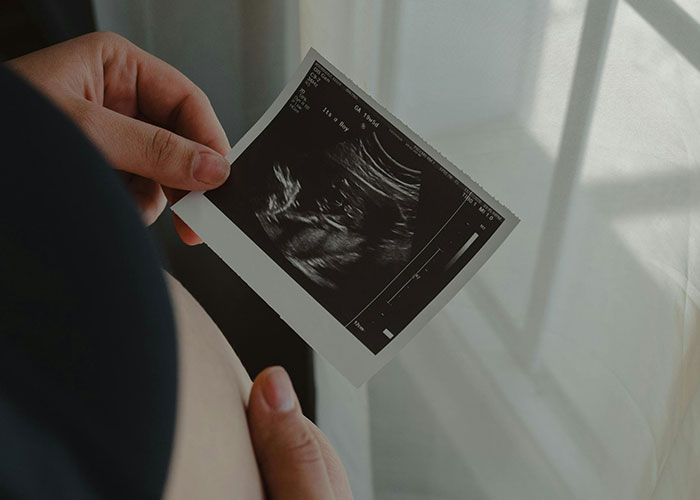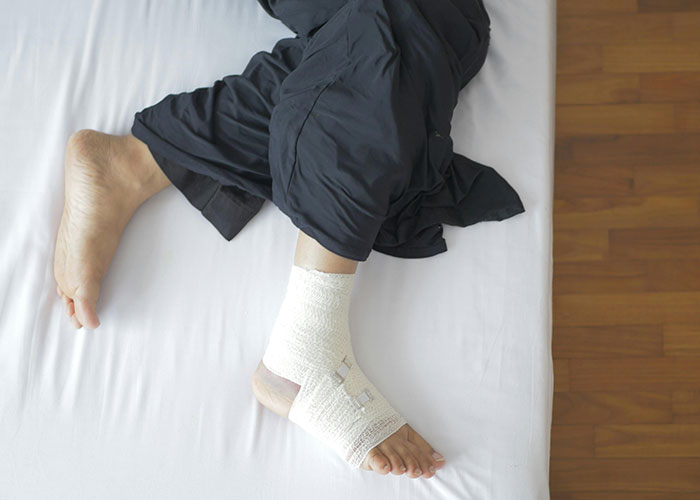Members of the ‘Ask Reddit’ community recently discussed things that people don’t realize have an extremely high chance of happening, after one of them started a discussion about it. The netizens’ answers covered all sorts of misfortunes—and a couple of more positive scenarios—so if you’re wondering what might be more likely to happen than you think, continue scrolling through to find out.
On the list below, you will also find Bored Panda’s interviews with Professor and the founding director of the Fire Safety Engineering Group (FSEG) of the University of Greenwich in London, UK, Dr. Ed Galea, and Assistant Professor at Michigan State University in the US, expert in hazard mitigation and science communication, Dr. Robert E. Drost, who were kind enough to answer a few of our questions about emergency situations.
D-Alembert , Caroline Cagnin / pexels (not the actual photo) Report
dangledor5000 , Lazaro Rodriguez Jr / pexels (not the actual photo) Report
balou918 , AnnaStills / envato (not the actual photo) Report
“My motto is ‘Chance Favors the Prepared Mind’,” expert in crowd safety, Prof. Ed Galea told Bored Panda in a recent interview. “In most emergency situations, every second counts and so it is essential to be prepared.
“It is not uncommon in disaster situations for people to display what is known as ‘Behavioral Inaction’, a situation where they are so overwhelmed by the rapidly unfolding circumstances of the disaster that they don’t know what to do, they can freeze and do nothing while they take in and try to comprehend the situation or they do things that are not appropriate to the situation. So having a plan of how you would respond to a disaster can make the difference between life and death.”
titsmuhgeee , Jonathan Borba / pexels (not the actual photo) Report
Remarkable-Bar1394 , Liza Summer/ pexels (not the actual photo) Report
For example, when you’re entering a crowded space, such as a shopping mall or a theater, the expert suggests checking out where the emergency exits are, and if possible identifying more than one exit. “Figure out how you would leave if you had to go in a hurry. Don’t leave it until you are immersed in the disaster to figure out how to get out.”
clisr , Alexander Dummer / pexels (not the actual photo) Report
MrPuzzleMan Report
amiwitty Report
While on a train, he advises sitting with your back towards the direction of travel, if possible; that way, if your train is involved in an accident resulting in a sudden stop, you won’t be flung forward out of your seat.
Square-Raspberry560 , Artyom Kulakov / pexels (not the actual photo) Report
Listening_Heads , Kampus Production/ pexels (not the actual photo) Report
Signal_Profile2865 , cottonbro studio / pexels (not the actual photo) Report
“Another piece of advice, if you hear an evacuation alarm, react to it immediately, don’t assume it’s a false alarm,” Prof. Galea added. “People don’t appreciate how quickly an emergency can turn into a disaster, literally, ’every second counts’, so start to evacuate as soon as you hear that alarm.
“In most survivable disasters, many people that don’t make it either delayed the start of their evacuation or didn’t know how to evacuate, so situational awareness is key (know your way out), as is a rapid response (when you hear the alarm, don’t question it – get out).”
cathlene_mwa , monkeybusiness / envato (not the actual photo) Report
an_ineffable_plan Report
slippysnips20 Report
“When they occur, they can have serious consequences for those in the crowd. Crowd disasters can happen anywhere in the world, from the poorest to the richest, most sophisticated countries in the world. They usually happen because authorities or those in charge failed to manage the space appropriately; there has either been poor or no control on numbers of people entering the space or there has been poor management of the crowds once the people have entered the space.
“Two recent examples of these types of disasters, where the authorities failed to control numbers and failed to appropriately manage the crowd once in the space, include the Itaewon crowd crush disaster of 2022 in South Korea (where more than 150 people died in a crowd crush on the streets of Seoul) and the Duisburg Love Parade crowd crush disaster of 2010 (where 21 people lost their lives and more than 650 people were injured simply because of poor crowd management).”
RealSalad8412 Report
Dels79 Report
Expensive-Pie-1813 Report
In an interview with Bored Panda, the expert in natural hazard mitigation, Dr. Robert E. Drost, seconded the idea that time and readiness are of utmost importance in case of an emergency situation. “Knowing what actions to take in a natural hazard event is a critical element to ensuring one’s safety. Often, decisions must be made quickly due to short lead times; the amount of time from when a warning is received until the hazard makes impact. There are many sources for information related to prudent preparation and evacuation practices available from local, state and federal agencies.”
galspanic , PhotoMIX Company / pexels (not the actual photo) Report
Express-Object955 Report
NoMistakeInThoughts , Burst / pexels (not the actual photo) Report
When working on being prepared for an emergency, you might want to take into consideration the type of the natural hazard that might occur, which is often linked to specific geographic locations based on weather and geologic conditions. “For instance, earthquakes are more common in the western part of the U.S. and tornadoes in the Midwest. Hurricanes are typical during certain seasons and most often along coastal areas. Though, this can—and has—changed as we experience changing climate patterns,” the expert noted.
AntsTasteLikeFruit Report
Human-Magic-Marker , Tracy Le Blanc/ pexels (not the actual photo) Report
frygod , Tima Miroshnichenko / pexels (not the actual photo) Report
Faelysis , Anna Shvets/ pexels (not the actual photo) Report
StreetsOfFire320 , Madel Baylongo/ pexels (not the actual photo) Report
DiondiHoodie Report
wanmoar , Towfiqu barbhuiya / pexels (not the actual photo) Report
Strange_Mine8007 , Mohammed Soufy/ pexels (not the actual photo) Report
Vegetable-Sand-1946 , LinkedIn Sales Navigator / pexels (not the actual photo) Report
IamAliveeee Report
Follow Bored Panda on Google News!
Follow us on Flipboard.com/@boredpanda!




































































































